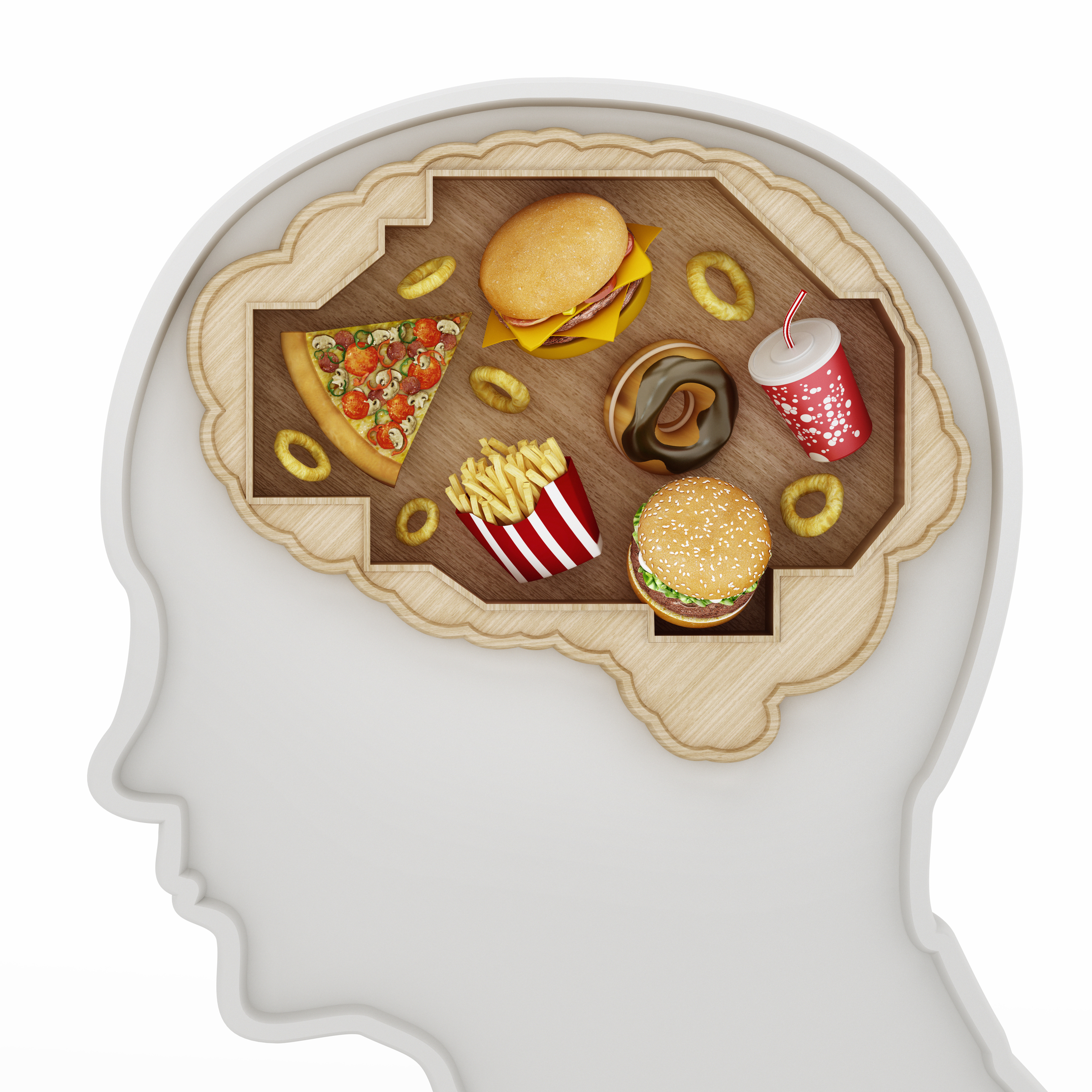Food Addiction: Not About Willpower

(This content is being used for illustrative purposes only; any person depicted in the content is a model)
It turns out food addiction has little to do with willpower. Research reveals those who struggle with food addiction have a fault in their brain chemistry.
Have you ever claimed to be obsessed with a particular food? Maybe it was pizza or ice-cream. Perhaps cake is your food of choice. Regardless of what it is, we all have claimed to be “obsessed” with certain food items. Fortunately, for most of us, this claim is simply an exaggeration. However, for a few of us, this obsession is far from a joke. Many people suffer from full-blown food addiction, and willpower has little to do with it.
Those who suffer from food addiction are unable to control their cravings no matter how much they desire to. Visions of food dance in their mind and despite the best of intentions, it becomes impossible to resist or stop indulging once they start.
This phenomenon is now identified as a food addiction, and it is far from an exaggeration. In fact, recent research has revealed that substance use disorder and food addiction involve the same biochemical process in the brain. Crazy, right?
Food addiction is an addiction the same way that alcohol or drugs can be an addiction for some people. While some people can indulge in food in moderation, those with food addiction struggle with stopping once they begin. Out-of-control eating leads to obesity and health problems long term. Most of all, those who have it feel an incredible amount of shame.
When we eat food, our brains receive a boost of dopamine, which makes food a source of pleasure for us. Some believe this is a survival instinct so that we desire to eat food rather than starve ourselves. The release of dopamine is our brain’s way of rewarding us for continuing our basic life-sustaining behaviors such as eating and sex.
Unfortunately, dopamine is often released when we do pleasurable things that are not so good for us. Those who use drugs or alcohol seek these substances because of the dopamine boost that these substances deliver. The same goes for food addicts. According to researchers, certain foods can trigger the same response in the brain as addictive drugs.
Food addiction is classified as a process addiction. This means that a person is not necessarily addicted to the food itself but the feelings they get from the food when eating it. Other process addictions are compulsive shopping, gambling, and sex.
Any addiction, whether it be eating, drugs, alcohol or something else, follows a similar cycle. Here is how it works with food:
- The High: When you eat your favorite food, your brain gets a boost of dopamine. You experience a rewarding sense of pleasure. Over time, you learn to associate the food you eat with pleasure.
- The Slump: Overtime, the feeling of pleasure you once felt eating that food decreases. Your brain starts to get used to it, so you have to eat more and more to feel that same amount of pleasure in the future. Even worse, you begin to feel depressed, irritable or stressed out which makes you want to eat more to feel better.
- The Craving: At this point, eating triggers even smaller increases in dopamine. It does not give you the same high that it used to so you begin to crave that food constantly. You find it hard to avoid overeating a certain food, even when you committed to never eating it again.
If this sounds familiar, you are not alone. The good news is your struggles with food and eating relate to your brain chemistry. Therefore, you should not feel ashamed by it. There are ways to treat your addiction.
There are support groups like Overeaters Anonymous and Eating Disorder Anonymous along with many others that help teach tools to overcome any form of food addiction. In addition, it is important to set yourself up for success. Surround yourself with healthy foods and steer clear of restaurants and stores where you normally get your favorite food.
Instead, increase your consumption of healthy foods and reward yourself for each day you do not overeat. Over time, you brain will learn to associate healthy eating with pleasure. Learn to enjoy activities like going out, or exercising instead of overindulging.
More importantly, understand that stress and unpleasant emotions cannot be cured through your food addiction. Indulging in unhealthy foods will only make these feelings worse. In time, you can rewire your brain and regain your self-control. Are you ready to make a change?
If you struggle with a food addiction, understand that you are not to blame. You are up again your own brain chemistry. The good news is there are treatment options that can get you back on track. If you are struggling, we are here to help. If you or someone you love is struggling with substance abuse or addiction, please call toll-free 1-800-777-9588.
